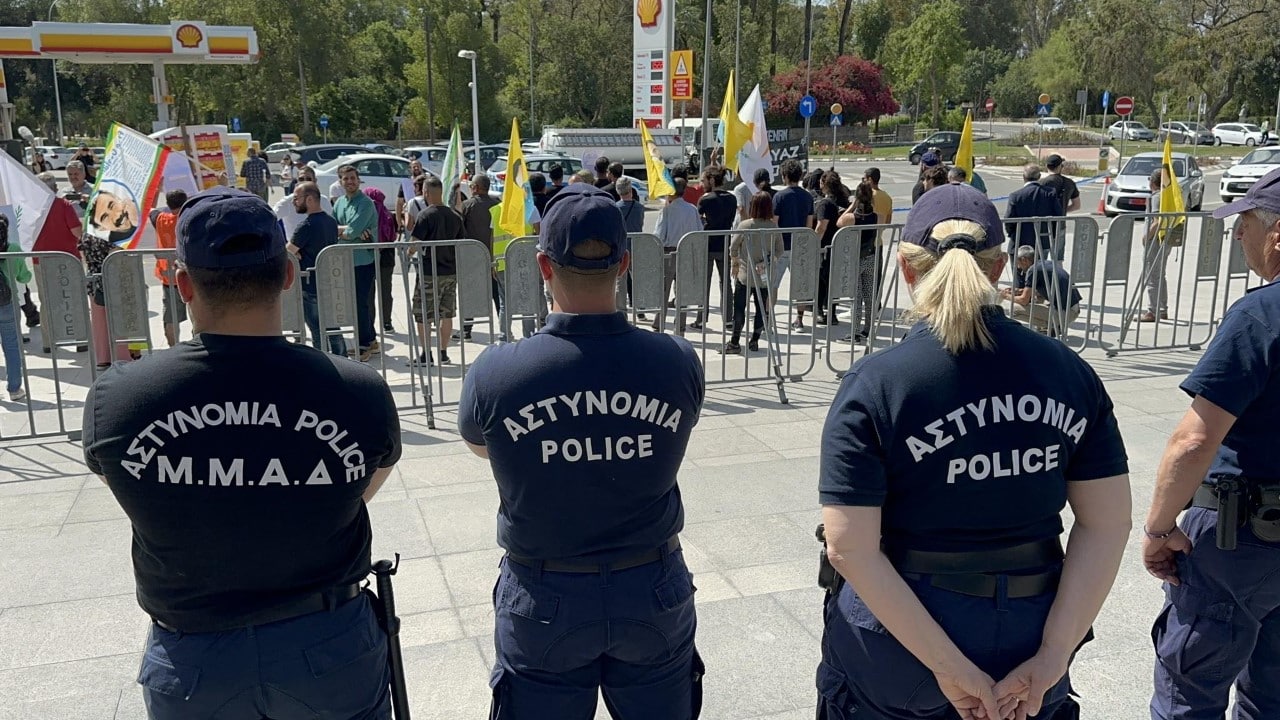The Supreme Court on Tuesday rejected the appeal of Kurdish activist Kenan Ayaz against his extradition to Germany, as President Nikos Christodoulides said he will raise the issue with German Chancellor Olaf Scholz in Berlin next week while on a state visit.
Ayaz was arrested in March on a European warrant issued by Germany, which is seeking his extradition on terrorism charges.
As tens of protestors demonstrated outside, three of whom were later arrested, the Supreme Court had to decide whether the extradition was justified while there was no presumption of criminal activity against him.
Ayaz is currently on day 13 of a hunger strike.
On Tuesday, the court deemed the causes behind the appeal invalid, with the judge saying that “the state cannot fail to comply with the European arrest warrant.”
But Ayaz’s lawyer Efstathios Efstathiou said the decision to reject the appeal was “very disappointing.
“The battle for human rights in Cyprus has been lost,” Efstathiou said, adding that the Ayaz’s case will now be taken to the European Court of Human Rights in Strasbourg.
“We are among the people who have considered that courts and justice are the refuge of the oppressed,” he said.
“Today, it was however proven that the court misinterpreted the law and the facts,” he added.
“The trial was political from the very beginning and the outcome of it, ending with the refusal to accept the appeal, is strong proof of the judicial system’s and the state’s bias.”
Akel MP Giorgos Koukoumas, who was also present during the trial, also slammed the court’s decision.
“As of today, Cyprus will be stigmatised with a shame similar to the one Greece faced when (Kurdish political leader Abdullah) Öcalan was extradited to Turkey,” Koukoumas said.
“Unfortunately, Cypriot justice and Cyprus’ government have accepted, via Germany, Turkey’s reasoning of who is and who isn’t a terrorist.
“Cyprus’ government should not hide behind justice because it will not be redeemed by the judgement that history will pass down,” Koukoumas said.
The Kurdish activist faced persecution for his political beliefs at the behest of Turkey with the consent of Germany, due to excellent relations between the two states, he added.
The defence has previously argued that once in Germany, Ayaz will be extradited to Turkey but the decision of the Larnaca court, which was being contested, states that Ayaz cannot be further extradited and any prison time should be served in a Cyprus prison.
The position of the defence remains that there is no presumption of an act of terrorism either in Germany or in another European country and that his prosecution is political.
Scuffles broke out outside the Supreme Court as protesters awaited the announcement of the court decision determining Ayaz’s fate.
Police placed barricades to block off the court entrance confining supporters who resisted, resulting in the arrest of three people, among them Ayaz’ brother.
Ayaz, meanwhile, has said he will not end the hunger strike for as long as his demands are unmet.
He has reportedly refused treatment by prison doctors and is in poor health.
Justice Minister Anna Procopiou had been under pressure from political figures to intervene so Ayaz would not be treated as a common criminal, Philenews reported on Tuesday.
Supporters of Ayaz consider the decision to be one of historical and symbolic importance in sending a clear message to Turkey in support of human dignity, rights and freedom.
The Kurdish-Cypriot solidarity association said “our state must protect him instead of sending him to Germany from where he will be sent as an alleged terrorist to Turkey”.
Cypriot representative of the group supporting Ayaz’ cause Lambros Kallenos in earlier statements said: “We demand that Kenan Ayaz not be extradited because he will end up in Turkey. Germany has been an ally of Turkey for decades. We cannot give credit to the guarantees they give. In Turkey, Ayaz is awaiting a 36-year prison sentence and his life will certainly be in danger.
“As Cypriots, we say that it is inconceivable that Cyprus would cooperate in such an extradition of a fighter who participated in the Kurdish struggle. He is not accused of anything specific that you can say is terrorism. He simply took part in seminars at a university in Germany, published a book, gave speeches. This is not terrorism,” he added.







Click here to change your cookie preferences